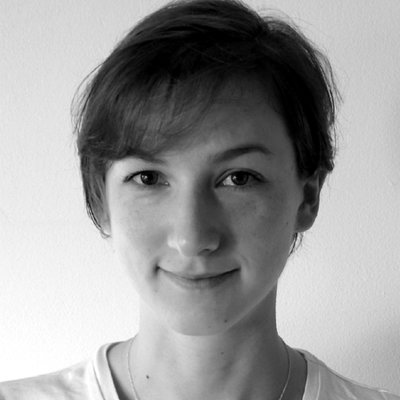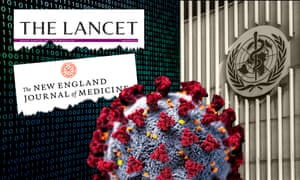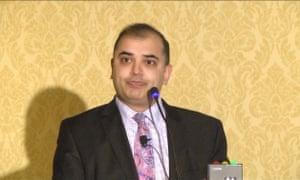The retrospective, observational study of 96,032 hospitalized COVID-19 patients from six continents reported substantially increased mortality (~30% excess deaths) and occurrence of cardiac arrhythmias associated with the use of the 4-aminoquinoline drugs hydroxychloroquine and chloroquine.
These results have had a considerable impact on public health practice and research. The WHO has paused recruitment to the hydroxychloroquine arm in their SOLIDARITY trial. The UK regulatory body, MHRA, requested the temporary pausing of recruitment into all hydroxychloroquine trials in the UK (treatment and prevention), and France has changed its national recommendation for the use of hydroxychloroquine in COVID-19 treatment and also halted trials.
The subsequent media headlines have caused considerable concern to participants and patients enrolled in randomized controlled trials (RCTs) seeking to characterize the potential benefits and risks of these drugs in the treatment and prevention of COVID-19 infections. There is uniform agreement that well conducted RCTs are needed to inform policies and practices. This impact has led many researchers around the world to scrutinize in detail the publication in question.
This scrutiny has raised both methodological and data integrity concerns. The main concerns are listed as follows:
1. There was inadequate adjustment for known and measured confounders (disease severity, temporal effects, site effects, dose used).
2. The authors have not adhered to standard practices in the machine learning and statistics community. They have not released their code or data. There is no data/code sharing and availability statement in the paper. The Lancet was among the many signatories on the Wellcome statement on data sharing for COVID-19 studies.
3. There was no ethics review.
4. There was no mention of the countries or hospitals that contributed to the data source and no acknowledgments of their contributions. A request to the authors for information on the contributing centres was denied.
5. Data from Australia are not compatible with government reports (too many cases for just five hospitals, more in-hospital deaths than had occurred in the entire country during the study period). Surgisphere (the data company) have since stated this was an error of classification of one hospital from Asia. This indicates the need for further error checking throughout the database.
6. Data from Africa indicate that nearly 25% of all COVID-19 cases and 40% of all deaths in the continent occurred in Surgisphere-associated hospitals which had sophisticated electronic patient data recording, and patient monitoring able to detect and record “nonsustained [at least 6 secs] or sustained ventricular tachycardia or ventricular fibrillation”. Both the numbers of cases and deaths, and the details provided, seem unlikely.
7. Unusually small reported variation in baseline variables, interventions and outcomes between continents (Table S3).
8. Mean daily doses of hydroxychloroquine that are 100 mg higher than FDA recommendations, whereas 66% of the data are from North American hospitals.
9. Implausible ratios of chloroquine to hydroxychloroquine use in some continents. For example, in Australia 49 received chloroquine and 50 received hydroxychloroquine. However, chloroquine is not readily available in Australia and administration requires authorization from the Therapeutic Goods Administration.
10. The tight 95% confidence intervals reported for the hazard ratios appear inconsistent with the data. For instance, for the Australian data this would imply about double the numbers of recorded deaths as were reported in the paper.
The patient data were obtained through electronic health records, supply chain databases, and financial records. The data are held by the US company Surgisphere. In response to a request for the data Professor Mehra replied: “Our data sharing agreements with the various governments, countries and hospitals do not allow us to share data unfortunately.”
Given the enormous importance and influence of these results, we believe it is imperative that:
1. The company Surgisphere provides details on data provenance. At the very minimum, this means sharing the aggregated patient data at the hospital level (for all covariates and outcomes)
2. Independent validation of the analysis is performed by a group convened by the World Health Organization, or at least one other independent and respected institution. This would entail additional analyses (e.g. determining if there is a dose-effect) to assess the validity of the conclusions
3. There is open access to all the data sharing agreements cited above to ensure that, in each jurisdiction, any mined data was legally and ethically collected and patient privacy aspects respected In the interests of transparency, we also ask The Lancet to make openly available the peer review comments that led to this manuscript being accepted for publication.
This open letter is signed by clinicians, medical researchers, statisticians, and ethicists from across the world. The full list of signatories and affiliations can be found below.
List of Signatories : Dr James Watson (Statistician, Mahidol Oxford Tropical Medicine Research Unit, Thailand)1 Professor Amanda Adler (Triallist & Clinician, Director of the Diabetes Trials Unit, University of Oxford, UK) Dr Ambrose Agweyu (Medical researcher, KEMRI-Wellcome Trust Research Programme, Kenya) Professor Dani Prieto-Alhambra (Epidemiologist, University of Oxford, UK) Dr Ravi Amaravadi (Researcher, University of Pennsylvania, USA) Professor Juan-Manuel Anaya (Clinician, Universidad del Rosario, Colombia) Professor Nicholas Anstey (Clinician, Menzies School of Health Research, Australia) Professor Yaseen Arabi (Clinician and researcher, King Saud Bin Abdulaziz University for Health Sciences, Saudi Arabia) Dr Elizabeth Ashley (Clinician, Director of the Lao-Oxford-Mahosot Hospital-Wellcome Trust Research Unit, Laos) Professor Michael Avidan (Clinician, Washington University in St Louis, USA) Professor Kevin Baird (Researcher, Head of the Eijkman-Oxford Clinical Research Unit, Indonesia) Professor Francois Balloux (Researcher, Director of the UCL Genetics Institute, UK) Dr Clifford George Banda (Clinician, University of Cape Town, South Africa) Dr Edwine Barasa (Health economist, KEMRI-Wellcome Trust Research Programme, Kenya) Dr Ruanne Barnabas (Physician Scientist, University of Washington, USA) Professor Karen Barnes (Clinical Pharmacology, University of Cape Town, South Africa) Professor Enrico Bucci (Systems Biologist, Temple University, USA) Professor Buddha Basnyat (Clinician, Head of the Oxford University Clinical Research Unit - Nepal, Nepal) Professor Philip Bejon (Medical researcher, Director of the KEMRI-Wellcome Trust Research Programme, Kenya) Professor Mohammad Asim Beg (Clinician/Researcher, Aga Khan University, Pakistan) Prof. Linda-Gail Bekker (Clinician, University of Cape Town, South Africa) Professor Leïla Belkhir (Clinician, Université Catholique de Louvain, Belgium) Mr Mostapha Benhenda (Data scientist, Melwy and COVIND Covid-19 Individual Patient Data Consortium, France) Professor Marc Bonten (Clinician/Researcher, University Medical Center Utrecht, The Netherlands) Professor Bjug Borgundvaag (Clinician, Director of the Schwartz/Reisman Emergency Medicine Institute, Canada) Professor Emmanuel Bottieau (Clinician, Institute of Tropical Medicine, Antwerp, Belgium) Professor David Boulware (Researcher & Triallist, University of Minnesota, USA) Professor Anders Björkman (Clinician, Karolinska Insitutet, Sweden) Dr Sabine Braat (Statistician, University of Melbourne, Australia) Professor Frank Brunkhorst (Clinician & Director of the Center of Clinical Studies, Jena University Hospital, Germany) Professor James Brophy (Clinician/Epidemiologist, McGill University, Canada) Professor Caroline Buckee (Epidemiologist, Harvard TH Chan School of Public Health, USA) Dr James Callery (Clinician, Mahidol Oxford Tropical Medicine Research Unit, Thailand) Dr Todd Campbell Lee (Researcher, McGill University, Canada) Professor Adrienne Chan, MD MPH FRCPC (Researcher, University of Toronto, Canada) Professor John Carlin (Statistician, University of Melbourne & Murdoch Children’s Research Institute, Australia) Dr Nomathemba Chandiwana (Research Clinician, University of the Witwatersrand, South Africa) Dr Arjun Chandna (Clinician, Cambodia Oxford Medical Research Unit, Cambodia) Professor Phaik Yeong Cheah (Ethicist/Pharmacist, Mahidol Oxford Tropical Medicine Research Unit, Thailand) Professor Allen Cheng (Clinician, Monash University, Australia) Professor Ivy Cheng (Clinician/Researcher, University of Toronto, Canada) Professor Kesinee Chotivanich (Researcher, Mahidol University, Thailand) Professor Leonid Churilov (Statistician, University of Melbourne, Australia) Professor Ben Cooper (Epidemiologist, University of Oxford, UK) Dr Cintia Cruz (Paediatrician Mahidol Oxford Tropical Medicine Research Unit, Thailand) Professor Bart Currie (Director, HOT NORTH, Menzies School of Health Research, Australia) Professor Joshua Davis (Clinician, President of the Australasian Society for Infectious Diseases, Australia) Professor Jeremy Day (Clinician, Oxford University Clinical Research Unit, Vietnam) Professor Nicholas Day (Clinician, Director of the Mahidol Oxford Tropical Medicine Research Unit, Thailand) Dr Hakim-Moulay Dehbi (Statistician, University College London, UK) Professor Justin Denholm (Clinician, Researcher, Ethicist, Doherty Institute, Australia) Dr Lennie Derde (Intensivist/Researcher, University Medical Center Utrecht, The Netherlands) Professor Keertan Dheda (Clinician/Researcher, University of Cape Town, & Groote Schuur Hospital, South Africa) Dr Mehul Dhorda (Clinical Researcher, Mahidol Oxford Tropical Medicine Research Unit, Thailand) Professor Annane Djillali (Dean of the School of Medicine, Simone Veil Université, France) Professor Arjen Dondorp (Clinician, Mahidol Oxford Tropical Medicine Research Unit, Thailand) Dr Joseph Doyle (Clinician, Monash University and Burnet Institute, Australia) Professor Emeritus Jean Dupouy-Camet (Former president of the European Federation of Parasitologists, Paris University, France) Dr Anthony Etyang (Medical Researcher, KEMRI-Wellcome Trust Research Programme, Kenya) Dr Caterina Fanello (Epidemiologist, University of Oxford, UK) Professor Neil Ferguson (Epidemiologist, Imperial College London, UK) Dr Ricard Ferrer (Head of Department of Intensive Care, Hospital Universitari Vall d’Hebron, Spain) Professor Andrew Forbes (Statistician, Monash University, Melbourne, Australia) Professor Oumar Gaye (Clinical Researcher, University Cheikh Anta Diop, Senegal) Dr Ronald Geskus (Head of Statistics at the Oxford University Clinical Research Unit, Vietnam) 1 For correspondence: james@tropmedres.ac Dr Mellie Gilder (Clinician/Researcher, Chiang Mai University, Thailand) Professor Emeritus Richard Gill (Mathematician/Statistician, Former President of Dutch Statistical Society, The Netherlands) Professor Dave Glidden (Biostatistics, University of California, USA) Professor Azra Ghani (Epidemiologist, Imperial College London, UK) Prof Philippe Guerin (Medical researcher, University of Oxford, UK) Dr. Raph Hamers (Clinician/Triallist, Eijkman-Oxford Clinical Research Unit, Indonesia) Dr Rashan Haniffa (Clinician/Researcher, NICST, Sri Lanka) Professor Stephane Heritier (Statistician, Monash University, Australia) Dr Thomas Hiemstra (Triallist, University of Cambridge, UK) Dr. Risa Hoffman (Clinician/Clinical Researcher, University of California, USA) Professor Peter Horby (Clinical Researcher, Centre for Tropical Medicine and Global Health, University of Oxford) Dr Sybil Hosek (Clinical Researcher, Cook County Health, USA) Dr Jens-Ulrik Jensen (Clinician/Triallist, University of Copenhagen, Denmark) Dr Hilary Johnstone (Clinical Research Physician, Independent) Professor Christine Johnston (Clinical Researcher, University of Washington School of Medicine, USA) Professor Peter Jüni (Director of the Applied Health Research Centre, University of Toronto, Canada) Professor Kevin Kain (Clinical Researcher, University of Toronto, Canada) Dr Sharon Kaur (Ethicist, University of Malaya, Malaysia) Dr Evelyne Kestelyn (Head of Clinical Trials, Oxford University Clinical Research Unit, Vietnam) Dr Patricia Kissinger (Clinical Researcher, Tulane University, USA) Professor Megan Landes (Clinician/Researcher, University of Toronto, Canada) Dr Tan Le Van (Medical Researcher, Oxford University Clinical Research Unit, Vietnam) Professor Katherine Lee (Statistician, University of Melbourne, Australia) Professor Laurence Lovat (Clinical Director of Wellcome EPSRC Centre for Interventional & Surgical Sciences, UCL, UK) Dr Nsobya Samuel Lubwama (Researcher, Makerere University College of Health Sciences, Uganda) Professor Kathryn Maitland (Clinician, Imperial College London/KEMRI Wellcome Trust Programme, Kenya) Dr Julie Marsh (Statistician, Telethon Kids Institute, Australia) Professor John Marshall (Clinician/Researcher, University of Toronto, Canada) Professor Gary Maartens (Clinician, University of Cape Town, South Africa) DR Ignacio Martin-Loeches (Clinician, Trinity College Dublin, Ireland) Professor Richard Maude (Clinician/Epidemiologist, Mahidol Oxford Tropical Medicine Research Unit, Thailand) Professor Mayfong Mayxay (Clinician/Researcher, Lao-Oxford-Mahosot Hospital-Wellcome Trust Research Unit, Laos) Dr Colin McArthur (Clinician/Triallist, Auckland City Hospital and Monash University) Dr Emily McDonald (Clinician/Researcher, McGill University Health Center, Canada) Professor Rose McGready (Clinician/Researcher, Shoklo Malaria Research Unit, Thailand) Dr Alistair McLean (Medical researcher, University of Oxford, UK) Professor Shelley McLeod (Clinical Epidemiologist, University of Toronto, Canada) Dr John McKinnon (Clinician/Researcher, Henry Ford Health System, USA) Dr Bryan McVerry (Medical researcher, University of Pittsburgh, USA) Laura Merson (Clinical researcher, University of Oxford, UK) Professor Clara Menendez (Clinical Researcher, Barcelona University, Spain) Professor William Meurer (Clinician/Medical researcher, University of Michigan, USA) Professor Ramani Moonesinghe (Clinician researcher, University College London, UK) Dr Kerryn Moore (Epidemiologist, London School of Hygiene and Tropical Medicine, UK) Dr Rephaim Mpofu (Clinician, University of Cape Town, South Africa) Dr Mavuto Mukaka (Statistician, Mahidol Oxford Tropical Medicine Research Unit, Thailand) Dr Srinivas Murthy (Clinical Researcher, University of British Columbia, Canada) Professor Kim Mulholland (Clinician, London School of Hygiene & Tropical Medicine, UK) Professor Daniel Neafsey (Researcher, Harvard T.H. Chan School of Public Health, USA) Professor Paul Newton (Clinician, University Oxford, UK) Professor Alistair Nichol (Clinician Researcher, University College Dublin, Ireland, & Monash University, Australia) Professor Francois Nosten (Clinician, Director of the Shoklo Malaria Research Unit, Thailand) Dr Matthew O’Sullivan (Clinician, Westmead Hospital & University of Sydney, Australia) Professor Piero Olliaro (Clinical Researcher, University of Oxford, UK) Dr William O’Neill (Clinician/Researcher, Henry Ford Health System, USA) Professor Marie Onyamboko (Clinical researcher, Kinshasa School of Public Health, DRC) Dr Marcin Osuchowski (Medical researcher, Ludwig Boltzmann Institute, Austria) Professor Catherine Orrell (Clinical Pharmacologist, University of Cape Town, South Africa) Professor Jean Bosco Ouedraogo (Medical Researcher, WWARN, Burkina Faso) Dr Temitope Oyedele (Clinician, Cook County Health, USA) Dr Michael Paasche-Orlow (Clinical Researcher, Boston University, USA Elaine Pascoe (Statistician, University of Queensland, Australia) Professor Michael Parker (Director of The Wellcome Centre for Ethics and Humanities, The Ethox Centre, University of Oxford, UK) Professor David Paterson (Clinician, Director, UQ Centre for Clinical Research, Australia) Dr Kajaal Patel (Paediatrician, Cambodia Oxford Medical Research Unit, Cambodia) Tom Parke (Statistician, Berry Consultants, UK) Professor Philippe Parola (Researcher, Aix-Marseille University, France) Professor Weerapong Phumratanaprapin (Deputy Dean of the Faculty of Tropical Medicine, Mahidol University, Thailand) Professor Pedro Politi (Oncologist, University of Buenos Aires, Argentina) Professor William Powderly (Director, Institute of Clinical and Translational Research, Washington University in St. Louis, USA) Dr Christophe Pouzat (Mathematician, CNRS, France) Dr David Price (Statistician, Doherty Institute & University of Melbourne, Australia) Professor Richard Price (Clinician, Menzies School of Health Research, Australia) Professor Sasithon Pukrittayakamee (Clinician, Mahidol University, Thailand) Dr Aung Pyae Phyo (Clinician/Scientist, Myanmar Oxford Clinical Research Unit, Myanmar) Dr Ben Saville (Statistician, Berry Consultants & Vanderbilt University) Professor Jason Roberts (Pharmacist/Clinician, The University of Queensland, Australia) Professor Frank Rockhold (Biostatistics/Bioinformatics, Duke University, USA) Professor Stephen Rogerson (Clinician, University of Melbourne, Australia) Professor Philip Rosenthal (Clinician, University of California, USA) Professor Kathy Rowan (Researcher, Director of the ICNARC Clinical Trials Unit, UK) Professor Ignacio Rubio (Researcher, University Hospital Jena, Germany) Professor Fiona Russell (Paediatrician, The University of Melbourne, Australia) Dr Sam Saidi (Clinician, University of Sydney, Australia) Dr Makoto Saito (Clinician/Epidemiologist, University of Tokyo, Japan) Dr William Schilling (Clinician, Mahidol Oxford Tropical Medicine Research Unit, Thailand) Dr Anuraj Shankar (Clinician/Triallist, Eijkman-Oxford Clinical Research Unit, Indonesia) Professor Sanjib Kumar Sharma (Clinician, Koirala Institute of Health Sciences, Nepal) Professor André Scherag (Statistician, Jena University Hospital, Germany) Professor Ilan Schwartz (Clinician/Researcher, University of Alberta, Canada) Professor Julie Simpson (Statistician, University of Melbourne, Australia) Dr Andre Siqueira (Medical researcher, Fundação Oswaldo Cruz, Brazil) Professor Frank Smithuis (Clinical researcher, Director of the Myanmar Oxford Tropical Research Unit, Myanmar) Dr Tim Spelman (Statistician, Karolinska Institute, Sweden) Dr Kasia Stepniewska (Statistician, University of Oxford, UK) Dr Nathalie Strub Wourgaft (Clinician, Drugs for Neglected Diseases initiative, Switzerland) Professor Darrell Tan (Clinician-Scientist, University of Toronto, Canada) Professor Christoph Thiemermann (Head of Centre for Translational Medicine & Therapeutics, Queen Mary University, UK) Dr Aimee Taylor (Statistician, Harvard T.H. Chan School of Public Health, USA) Dr Walter Taylor (Clinician, Mahidol Oxford Tropical Medicine Research Unit, Thailand) Professor Antoni Torres (Clinician, University of Barcelona, Spain) Professor Guy Thwaites (Clinician, Director of the Oxford University Clinical Research Unit, Vietnam) Professor Tran Tinh Hien (Clinician, Oxford Clinical Research Unit, Vietnam) Professor George Tomlinson (Biostatistician, Mt Sinai Hospital, Canada) Professor Steven Tong (Clinician, University of Melbourne, Australia) Professor Paul Turner (Clinician/Researcher, Director of Cambodia Oxford Medical Research Unit, Cambodia) Professor Ross Upshur (Head of Division of Clinical Public Health, University of Toronto, Canada) Professor Rogier van Doorn (Clinical Microbiologist, University of Oxford, UK) Professor Lorenz von Seidlein (Clinician, Mahidol Oxford Tropical Medicine Research Unit, Thailand) Dr Dee Dee Wang (Clinician/Researcher, Henry Ford Health System, USA) Professor Sir Nicholas White (Clinician, Mahidol Oxford Tropical Medicine Research Unit, Thailand) Professor Thomas Williams (Clinician, KEMRI-Wellcome Trust Research Programme, Kenya) Dr Martin Sebastian Winkler (Clinician, University Medical Center Gottingen, Germany) Professor Chris Woods (Researcher, Duke University, USA) Dr Charlie Woodrow (Clinician, Oxford University Hospitals NHS Trust, UK) Dr Sophie Yacoub (Clinician, Oxford University Clinical Research Unit, Vietnam) Professor Marcus Zervos (Researcher, Henry Ford Health System, USA)
 The effectiveness of hydroxychloroquine as a treatment for Covid-19 has yet to be determined. Photograph: John Locher/AP
The effectiveness of hydroxychloroquine as a treatment for Covid-19 has yet to be determined. Photograph: John Locher/AP



